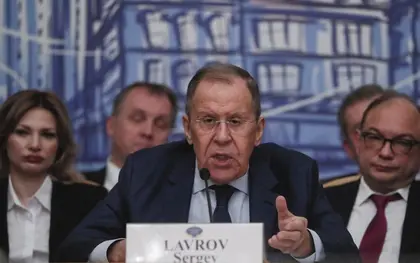Russia’s ongoing invasion of Ukraine has presented US intelligence services with a unique opportunity to target Kremlin insiders dissatisfied with the handling of the war for recruitment, as reported by CCN.
“Disaffection creates a once-in-a-generation opportunity for us. We’re very much open for business,” CIA Director Bill Burns said during a speech in the United Kingdom last year.
Follow our coverage of the war on the @Kyivpost_official.
David McCloskey, a former CIA officer, said, “That business is the exchange of information that the asset or agent would provide for something that they want.”
“We want people who have some sense of what [Russian] leaders’ priorities are – what they’re trying to accomplish,” he added.
According to CNN’s report, the recruitment effort is not a secret. The CIA has released Russian-language videos on social media, appealing to the patriotism of disaffected Russians with access to valuable information.
These posts include step-by-step instructions for potential informants on how to avoid detection by Russian security services using virtual private networks (VPNs) and the Tor web browser to contact the agency anonymously and securely on the Dark Web, the report disclosed.
The FBI has launched a similar initiative to recruit Russian government sources working in the US, including geographic targeted social media ads aimed at phones located near Russia’s embassy in Washington.

“This direct appeal is an unusual approach, but one which could prove effective in reaching a Russian populace with few options to express their discontent,” said Douglas London, a former CIA station chief.
London suggested that Russians who are angry with the Kremlin’s state-sanctioned corruption and abuse and have no way to act openly, are left with few alternatives other than seeking external support.
Over 30 years after the dissolution of the Soviet Union, the world entered a new period of superpower conflict. CNN’s chief national security analyst, Jim Sciutto, describes it as “a definitive break between the post-Cold War era and an entirely new and uncertain one” in his latest book.
As during the Cold War era, espionage remains a vital tool for both sides. Tech-savvy US intelligence officers are openly attempting to recruit new assets, while Russian-linked operatives reportedly increase operations across Europe.
Russian spymasters bribed German politicians to make anti-Ukraine statements and to buy pro-Kremlin votes in the European Parliament, a major Prague news platform reported, citing intelligence from the Czech national intelligence agency BIS.
The Denik N newspaper revealed that Czech counterintelligence uncovered a network of Kremlin agents and local operatives paying anti-government politicians from at least six EU member states to influence European Parliament votes in favor of Russia.
The operation also funded a major pro-Russian news website, which produced content praising Moscow and spreading negative propaganda about Ukraine, marking one of the largest exposed Russian influence operations in recent years.
Hungarian news outlet VSquare reported that around 100 of the 252 Russian spies in Austria work as diplomats, with many more possibly using civilian cover. This information, shared by an unnamed intelligence chief from a Central European country, was revealed in a closed-door meeting with officials.
In February, it was reported that Ireland refused to renew visas for several Russian diplomats over espionage concerns.
Page 2
The Kyiv Post is Ukraine’s English-language newspaper and proud winner of the 2014 Missouri Honor Medal for Distinguished Service in Journalism. The newspaper’s first print edition came out on Oct. 18, 1995, and went online in 1997.
The post Ukraine War Sparks US Intelligence Recruitment of Disgruntled Kremlin Insiders first appeared on The News And Times Review – NewsAndTimes.org.

